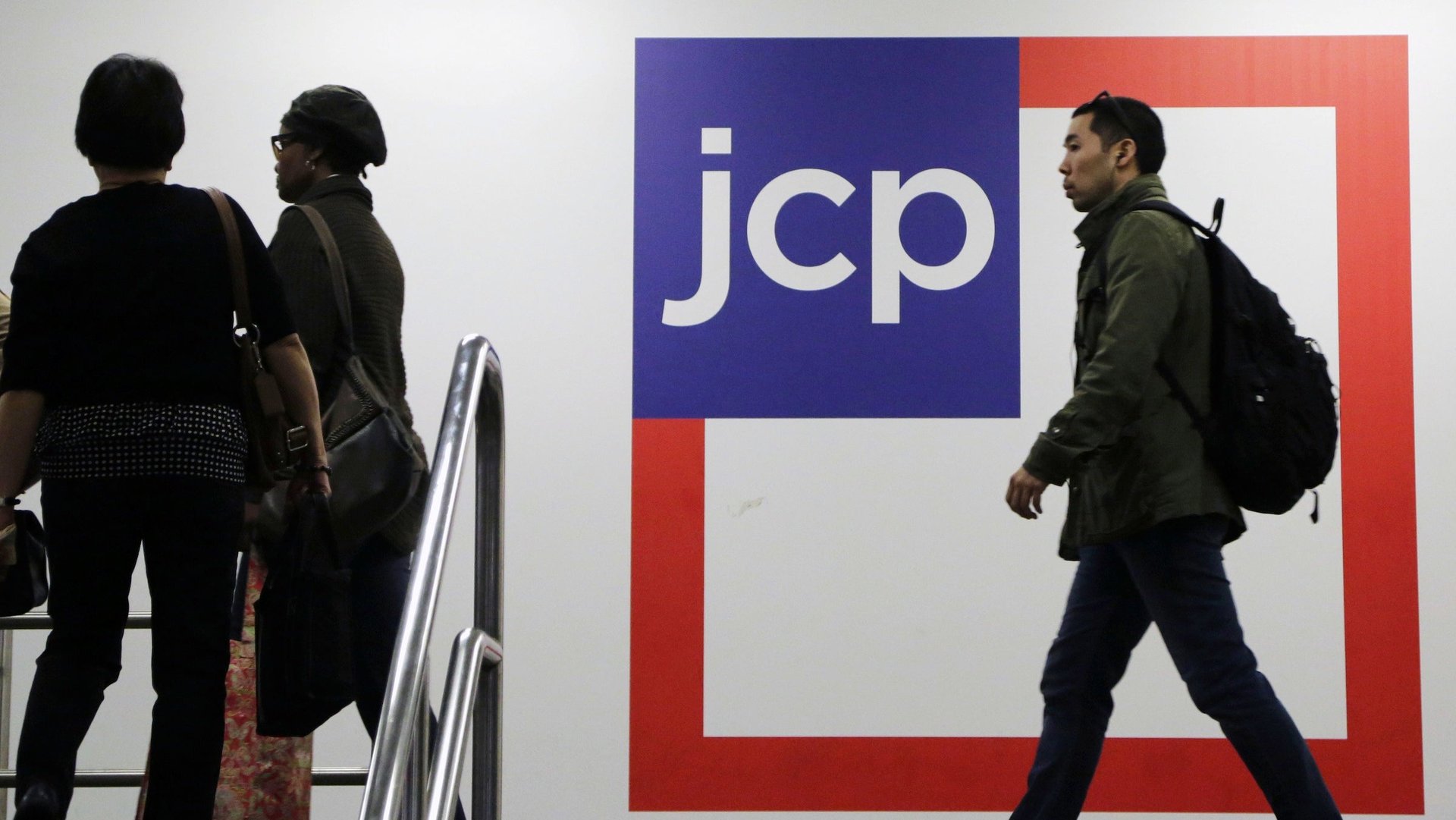JC Penney’s business is still dubious, but at least it might be able to raise some cash
The news that JC Penney has hired Blackstone to help it raise $1 billion could be either good or bad, depending on how you look at it. The US department store chain is talking to private equity firms and others about a stake sale as a potential way to raise cash—the good news. But to invest in JC Penney, you have to believe it has a future, and that’s still in question—the bad news.


The news that JC Penney has hired Blackstone to help it raise $1 billion could be either good or bad, depending on how you look at it. The US department store chain is talking to private equity firms and others about a stake sale as a potential way to raise cash—the good news. But to invest in JC Penney, you have to believe it has a future, and that’s still in question—the bad news.
There’s no doubt private equity firms will take a look at JC Penney; some have looked at it before. But private equity likes companies that throw off a lot of cash, something JC Penney is currently not doing. To put money into a company that still looks like it’s in free fall is a big leap.
JC Penney needs money because it has been burning through cash to remodel its stores. Last week, it launched home goods boutiques within its department stores. That investment, combined with dismal sales, means JC Penney could be out of cash in a year at its current pace.
As a result, JC Penney’s creditors have been getting nervous and the S&P downgraded its credit rating earlier this year. A law firm representing investors has already accused JC Penney of defaulting on a bond. In February, JC Penney announced it had increased its borrowing capacity to $1.85 billion, which gives it some wiggle room. But it can’t live on debt forever.
JC Penney’s need for cash is also not reassuring to vendors. And that means the retailer may have to restructure its debt or face bankruptcy. The demise of US electronics retailer Circuit City in 2008 is a reminder that JC Penney doesn’t need to actually run out of cash to run into trouble. Circuit City’s vendors, nervous about falling sales, cut off credit, causing Circuit City to go bankrupt.
It’s nice to know, therefore, that besides giving advice, Blackstone is good at is restructuring. That could be a useful skill for JC Penney to have in its back pocket if it can’t find the cash it needs. JC Penney’s new/old CEO, Mike Ullman, also has experience with restructuring, taking over Macy’s in the 1990s after that retailer filed for bankruptcy.
Ullman’s return to the top job earlier this week was not welcomed by the markets. Ullman replaced Ron Johnson, the former Apple executive who had replaced him in late 2011 but was this week forced out after his strategy failed. The company’s stock fell on the appointment of Ullman, under whose stewardship the company began its decline, and was down again today by more than 2.5% after the US reported weak March retail sales.
But the company did get another piece of good news today. A judge dismissed unfair competition claims against it, opening the door to JC Penney selling Martha Stewart products. The retailer was in a legal dispute with Macy’s, which also sells Stewart’s wares. At least that’s one more source of revenue to look forward to.